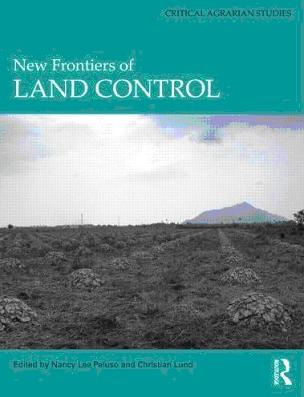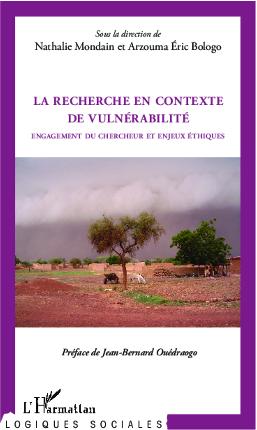
by Admin-Apad | 30 Mar 2015
Nancy Peluso and Christian Lund (eds). 2012.
Questions about land control have invigorated thinkers in agrarian studies and economic history since the nineteenth century. ‘Exclusion’, ‘alienation’, ‘expropriation’, ‘dispossession’, and ‘violence’ animate histories of land use, property rights, and territories. More recently, agrarian environments have been transformed by processes of de-agrarianization, urbanization, migration, and new forms of primitive accumulation. Even the classic agrarian question of how the social relations of agriculture will be influenced by capitalism has been reformulated at critical historical moments, reviving or producing new debates around the importance of land control. The authors in this volume focus on new frontiers of land control and their active creation. These frontiers are sites where established power relationships are challenged by new enclosures and property regimes, producing new social and environmental dynamics in their stead.

by Admin-Apad | 30 Mar 2015
Bruno Martinelli et Jacky Bouju (dir). 2012.
Dans plusieurs pays africains la croyance à la sorcellerie se traduit par des accusations, des stigmatisations, des violences, des procès judiciaires et parfois, par de lourdes condamnations. Des églises aux tribunaux, être désigné comme « sorcier » impute à la personne accusée une capacité de nuire et l’assigne à une déchéance d’humanité. De l’espace villageois à l’espace urbain, de l’espace privé à l’espace public, les flambées de violences accusatrices ont un caractère quasi épidémiologique allant jusqu’à mettre en cause le fonctionnement de l’État et de ses institutions.
Cet ouvrage fait le choix d’aborder la question de la sorcellerie sur le terrain de la violence qu’elle engendre. La question de savoir si la violence sociale déployée autour de la sorcellerie est une forme de coercition (légitime) ou une forme de violence (illégitime) fait aujourd’hui débat dans la plupart des sociétés africaines. Pour tout le monde, la sorcellerie engendre la violence, que ce soit la violence du présumé sorcier qui se nourrirait de l’énergie vitale d’une personne, ou la violence des accusateurs, des pasteurs-prophètes, des forces de l’ordre ou de la vindicte populaire à l’encontre des accusés. Les hésitations des autorités pour juger de quel côté, de l’accusation ou de l’accusé, se situe la violence font écho au grand partage qui s’est établi depuis l’époque coloniale entre les croyances populaires à la sorcellerie et les jugements de Loi.

by Admin-Apad | 30 Mar 2015
Nathalie Mondain & Arzouma Eric Bologo (dir), 2013.
Cet ouvrage novateur est issu de plusieurs années de réflexion. Il est fondé sur une expérience concrète de terrain en Afrique de l’Ouest, qui a fait ressortir les décalages entre les intérêts des acteurs impliqués dans la recherche et ceux des populations pour qui la signification de ces travauxsemble inaccessible. D’où ce questionnement : où se situe l’éthique de la recherche dans des contextes où le chercheur risque de rester détaché des préoccupations quotidiennes de ceux et celles à qui il est censé s’adresser, au-delà du respect des normes prescriptives posées par les comités d’éthique ? Les contributions présentes dans cet ouvrage – qui attestent de la vitalité d’un champ de recherche – développent une réflexion sur les enjeux éthiques, allant de la notion de consentement aux différentes dimensions de la restitution des résultats. Elles s’adressent à un public de chercheurs, d’universitaires et d’étudiants trop souvent démunis face à ces problématiques.

by Admin-Apad | 30 Mar 2015
Sarah Fichtner, 2012.
The NGOisation of education has emerged both as a driving mechanism and as a consequence of the globalisation of public services that increased tremendously during the peak of neoliberal global governance in the long 1980s. Currently, NGOs’ development aid in the field of education involves primarily the promotion, marketing, and management of global models, norms and standards, and to a much lesser extent the provision of resources and services to ‘the poor’. This development-driven promotion of norms, i.e., shared, evaluative expectations of behaviour regarding how beneficiaries of aid should develop and manage their own development, takes place at the very heart of the state as well as at its margins. Based on four case studies from the West African country of Benin, Sarah Fichtner examines the processes of the NGOisation of education from an empirical perspective. She provides a counter-perspective to essentialist and exoticising essays on the African state, as well as to econometric and world-culturalist approaches to education in the Global South.

by Admin-Apad | 30 Mar 2015
Christian Lund and Catherine Boone (eds), AFRICA vol. 83, no. 1, 2013
Land issues are not only about land. Rather, they invoke questions of property more broadly, implicating social and political relationships in the widest sense. Struggles over property may therefore be as much about the scope and structure of authority as about access to resources, with land claims being bound up with questions of authority, citizenship and the politics of jurisdiction. This collection investigates the relationships between property, citizenship and political institutions, and how each of these plays a role in constituting the others. This seems especially relevant in the light of the many efforts at land tenure reform that tend to assume the separate and settled existence of property, of citizenship, and of the state. We consider none of these socio-political features as separate or pre-established facts. Rather, land politics involves dynamic claims whose success and materialization depend upon the power relations among social groups and actors wielding different forms of institutional authority over land.







Recent Comments